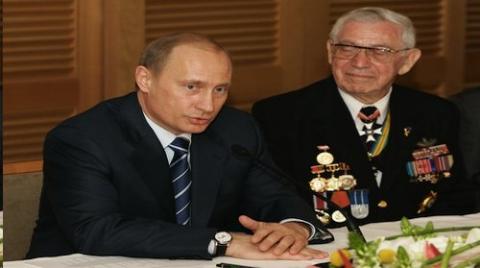The Fear of Working as a Journalist in Putin’s Russia

From New America Media:
Commentary
VLADIVOSTOK, Russia -- I am 23. I have worked in the press in the city of Vladivostok for seven years. I live in Vladimir Putin’s Age, or should I say, in the manner of many university professors, “The Regulation Age of Russian Media.” This age started in 2000 when Putin became president. Nobody knows when this presidency will end.
Sometimes I ask myself: “What will I tell my grandkids about these times?” I will tell them that in 2006, when I had just turned 18, the famous Russian journalist Anna Politkovskaya was gunned down in full daylight. And her death sent a clear message to all independent media in Russia.
“Stop writing for newspapers! Find another job! Journalists are being killed in Russia!” That’s what my relatives and friends who remember life in the former Soviet Union and what it was like to criticize the authorities often tell me.
But I always argue: “I will die some day. And I don’t want to do die knowing I didn’t help change our society.”
We young people need to try to create a new type of media that is uncensored and honest. If it doesn’t happen now, it will never happen.
There were incidents when journalists in Vladivostok were beaten by police and arrested just because they covered protests against increasing taxes on cars that have the steering wheel on the right side. These cars were imported from Japan and are very popular. You have to wonder: Why increase the taxes? Is it just because Putin decided to back our domestic engineering, particularly “Avtovas,” our own car company whose leaders are on familiar terms with him?
Frankly speaking, being abused is not exactly what I’m afraid of. I’m afraid that somebody, as often happens in Russian media, will come and say: “Listen, this is not your newspaper. We bought it. You can stay and tell ‘our truth,’ or you can leave!” That has happened before, as with the once independent but now state-controlled mouthpiece channel, NTV. Or take the regional newspaper “Vladivostok,” where I used to work. The mayor, through an affiliated company, bought it, and in the first meeting with the editorial staff, announced: “If someone is against Putin’s politics, there is no place for you in this newspaper.” The paper soon had an entirely new staff.
This is why I didn’t vote for Putin’s protégé Dmitry Medvedev in 2008, nor I did I vote for Putin in the March 4 election. I don’t know a single journalist who did.
But some people did vote for him. People in villages and small towns, especially those who get their information from state-controlled TV programs that portray Putin as god-like. These voters usually don’t have access to the Internet. People in the Army and Navy, students of military universities, those who work in various governmental sectors, those working in state-run medicine facilities, and students who live in dormitories who were told that renovation of their dorms depended on the results of voting in their areas, all voted for him. And, of course, so did people in the region of Caucasus.
People in big cities protested—especially in Moscow and St. Petersburg—and there were protests in Vladivostok as well. People protested not just against Putin himself, and what many perceived as a rigged election. They protested against Putin’s Russia. They protested inflation and costly public utilities; they protested against obdurate bureaucracy, against police brutality, against corruption and theft of the budgets for big projects. Billions of dollars were stolen in the construction of an oil pipeline from West Siberia to the Pacific Ocean, for example, and so far no one has been arrested.
The resistance is growing. I have high hopes for the Internet and social media.
Of course, there remain some problems with Internet distribution in Russia. It is not widespread in the countryside and small towns, where populations always go to the polls. The second problem is that our government tries to control the Internet. Of course, it’s not possible to do this directly. Russian law that regulates the Internet cannot be applied to sites that are registered in other countries. So the website livejournal.com, where the blogs of the majority of Russian oppositionists are located, has no risk of being shut down by the government.
But there are other ways to attack them. One of the most popular efforts is to make so-called DDoS attacks [distributed denial-of-service attacks], which make the website unavailable to readers. Livejournal.com was attacked several times – every time it published an important piece of information against the current authorities. On Dec. 4, when the elections in the State Duma were held, several websites (including livejoural.com, grani.ru and echo.msk.ru, which were going to publish information about violations) were attacked. Sometimes bloggers are jailed for being “extremists.” When you claim you don’t like Putin, you can end up in prison. This has happened to about a dozen bloggers. If you criticize the police, you can also be treated as an “extremist.”
Yet, I am optimistic. These days, 50,000 people gather at the Bolotnaya Square in Moscow when led by famous blogger and Internet hero Alexey Navalny (navalny.livejournal.com). We young journalists are trying to create a new reality – a reality different from the mainstream media – using the Internet and social media. I am constantly on Twitter and Facebook. And I see more people getting active in the new media. I look forward to the day when the independent media can challenge Putin and his state-controlled press.






























































































































































































































































































































